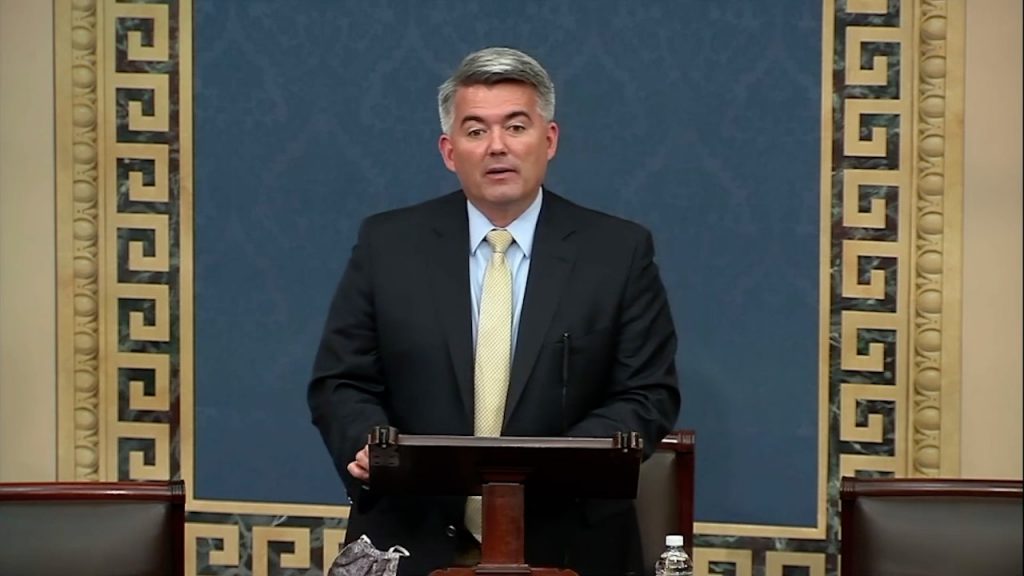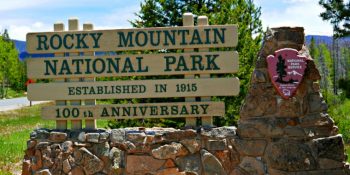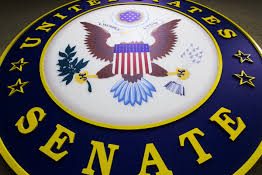Calls on Senate to pass his bipartisan resolution with Senator Markey
Washington, D.C. – U.S. Senator Cory Gardner (R-CO), Chairman of the Senate Foreign Relations Subcommittee on East Asia, the Pacific, and International Cybersecurity Policy, spoke on the floor of the U.S. Senate today recognizing the 70th anniversary of the outbreak of the Korean War. Gardner called on the Senate to pass his bipartisan resolution with U.S. Senator Ed Markey (D-MA) recognizing the historic occasion.

NOTE: Click here to download Senator Gardner’s remarks.
“When I visited the Korean War Memorial in Seoul in July 2017, I read the names of Americans and Coloradans that died answering the call to defend ‘a country they never knew and a people they never met.’ I think that, today, we owe it to our fallen soldiers to recognize what the world has gained from their sacrifice,” said Senator Gardner. “The alliance has proven to not only be crucial for U.S. economic and national security interests, but for our health as well. This was most evident as South Korea led a pivotal response to the COVID-19 pandemic. I worked closely with our South Korean allies and Colorado Governor Jared Polis to obtain hundreds of thousands of COVID-19 testing kits for Colorado, which will continue to be vital as we get through this ongoing pandemic.”
Remarks as prepared for delivery:
Mr. President – I rise today to speak about the Republic of Korea, a longtime ally and partner that resides in one of the most prosperous – and one of the most dangerous – parts of the world.
When most of us hear about Korea, we instinctively focus on the threat emanating from the bizarre failed state in the north, and we often forget about the incredible success story in the south that was made possible largely by the United States-South Korea Alliance.
When I visited the Korean War Memorial in Seoul in July 2017, I read the names of Americans and Coloradans that died answering the call to defend “a country they never knew and a people they never met.” I think that, today, we owe it to our fallen soldiers to recognize what the world has gained from their sacrifice.
On June 25, 1950, Kim Il Sung’s army crossed the 38th parallel to invade South Korea.
In response, the United States mobilized the international community under the United Nations flag, and sent hundreds of thousands of U.S. troops to defend Korea.
To this day, thousands of United States soldiers remain unaccounted for.
Over one million Korean civilians perished.
Most survivors have never seen or spoken with their families across the border.
The United States decision to intervene in that war transformed the future of Asia.
South Korea has blossomed from a war-torn state to an economic powerhouse, a thriving democracy – and in recent months – a global leader in response to a public health crisis.
South Korea boasts the 12th largest economy in the world and has become a leader in critical future technologies such as telecommunications, electronics, and semiconductors.
They have managed to do this despite a population of only 50 million people, few natural resources, and effectively operating as an island restricted to maritime trade.
South Korea’s hard-fought transition from authoritarian governance to a vibrant democracy took time, persistence, and grit.
It is now a democracy with a highly educated and active civil society that embraces rule of law and human rights – and stands in contrast to its authoritarian neighbors in North Korea and China.
As our South Korean ally has grown more prosperous and more capable, it has also taken on outsized responsibility.
Since the Korean War, South Korea has fought alongside the United States in all four of our major conflicts.
Once a recipient of foreign aid, Seoul is now a worldwide donor. It has become a critical pillar in upholding the post-war order, playing a valuable role in the global non-proliferation regime, global emissions reduction, peacekeeping, cybersecurity, counterterrorism, and post-conflict stabilization.
South Korea has also become a key stakeholder in various international organizations, including:
The United Nations, World Trade Organization, G–20, Organization for Economic Cooperation and Development, and the Asia-Pacific Economic Cooperation forum, to name a few.
The alliance has proven to not only be crucial for U.S. economic and national security interests, but for our health as well. This was most evident as South Korea led a pivotal response to the COVID-19 pandemic.
I worked closely with our South Korean allies and Colorado Governor Jared Polis to obtain hundreds of thousands of COVID-19 testing kits for Colorado, which will continue to be vital as we get through this ongoing pandemic.
Weeks ago, President Trump invited President Moon of South Korea to join the upcoming G-7 Meeting. I fully endorse this decision, and at the current juncture, I believe it is time to explore new avenues to broaden cooperation with South Korea on the global stage, including in global health, the environment, energy security, and emerging technology.
South Korea is situated in the most precarious neighborhood in the world. Koreans have historically explained their geographical fate as being a “shrimp among whales”. Indeed, northeast Asia holds a number of nuclear-capable states, economic mammoths, and the largest standing armies in the world.
In our alliance, we vow to defend one another from attack. But it often goes unstated that South Korea bears the frontline burden of this defense.
While North Korea has only recently tested an ICBM capable of reaching the continental United States, Seoul has been under threat of artillery, short-range missiles, and armed invasion for decades.
In the shadow of this threat, South Korea has invested considerably in defense – over 2.5% of its GDP. It also funded over 90% of the costs of Camp Humphreys – what is now the largest overseas U.S. military base in the world.
These are just a few ways in which South Korea remains a model alliance partner.
Against the backdrop of rising tensions in recent weeks, we should swiftly conclude negotiations on the Special Measures burden-sharing agreement, which would provide strategic stability on the Korean Peninsula and strengthen the U.S.-South Korea Alliance.
The United States and South Korea maintain a tightly-integrated combined forces command that is unique in the world. This demonstrates the immense trust and combined capability between our two militaries.
This unique structure makes credible our ability and commitment to meet threats at a moment’s notice.
It also allows us to stand shoulder-to-shoulder as allies and say “katchi kapshida” – or “we go together.”
But the alliance faces greater threats today than at any time in the past.
Chinese coercion in the Yellow Sea and the East China Sea, as well as militarization of the South China Sea, have all increased in recent years.
As China has grown, it has also become more aggressive. We must come together with regional partners to resist this coercive behavior.
Only with a concerted voice can we preserve global norms and international law, and South Korea plays a growing role in upholding this regional order.
Our North Korea policy has for decades failed to achieve denuclearization of the Korean Peninsula. However, the U.S.-South Korea Alliance has succeeded in deterring Pyongyang, retaining regional stability, maintaining conditions for the growth and prosperity of every country in the region – except Pyongyang.
We stand ready to welcome the people of North Korea into the international community, but this requires Pyongyang to commit to economic reform, to treat its people with dignity, and to refrain from menacing others with weapons of mass destruction.
I believe U.S. policy toward North Korea should be straightforward: until we achieve the denuclearization of North Korea, the United States will deploy every economic, diplomatic, and if necessary, military tool at our disposal to deter Pyongyang and to protect our allies.
Pyongyang recently exploded the inter-Korean liaison office in Kaesong and began rolling back its commitments under the April 2018 Panmunjom Declaration. Since the February 2019 summit in Hanoi, Pyongyang has rebuffed working level negotiations with the United States.
In March of this year, Kim launched a record number of missiles in a single month, and continues to unveil new missile systems that pose novel threats to our allies South Korea and Japan.
Kim Jong Un is showing that he does not want diplomatic and economic engagement on the terms offered by the United States and the international community – but wants only to deepen his country’s self-isolation and build his weapons programs.
The United States must respond with our allies.
We must consider restoring military exercises with our partners in Seoul and Tokyo, enhance missile defense, and remain in close consultation to reassure our allies of our commitment to defend them from any aggression or coercion.
Kim Jong Un must not underestimate the resolve of the United States to defend our allies.
But peaceful resolution of the North Korean problem also requires the international community to finally join together in fully implementing United Nations sanctions.
In this effort, we require greater cooperation from Beijing.
China accounts for 90 percent of North Korea’s trade, including virtually all of North Korea’s exports.
The most recent UN Panel of Experts report to the North Korean Sanctions Committee provided clear evidence of illicit ship-to-ship transfers between North Korean and Chinese ships just off the Chinese coast.
These blatant sanctions violations must end now.
In 2016, I led the North Korea Sanctions and Policy Enhancement Act (NKSPEA), which passed the Senate by a vote of 96-0.
The Trump Administration has the opportunity to use these authorities to build maximum leverage with not only Pyongyang, but also with Beijing.
If China will not act to ensure its entities comply with international law, perhaps pressure from the United States Treasury and the Department of Justice will make it a priority for Beijing.
I was initially encouraged by the Administration’s decision in June of 2017 to sanction the Chinese bank of Dandong. This conveyed an unprecedented political statement that we were serious about the maximum pressure campaign. And it got results.
However, even as we saw Chinese sanctions enforcement wane after summits in 2018, the pace of designations and indictments has slowed tremendously.
The Administration, with Congressional support, should now make clear to any entity doing business with North Korea that they will not be able to do business with the United States or have access to the U.S. financial system.
Last month, the United States Department of Justice charged 28 North Koreans and five Chinese citizens with using a web of more than 250 shell companies to launder over $2.5 billion in assets through the international banking system.
This is a good sign, but individual indictments have not effectively deterred further sanctions violations. We need to pressure Chinese banks that serve as the illicit conduit between North Korea and the outside world.
As for any prospect of engagement, we must continue to make it clear to Beijing and Pyongyang the United States will not negotiate with Pyongyang at the expense of the security of our allies.
Maintaining robust U.S. alliances in the Asia-Pacific, in fact, should be our number one priority.
That is why last Congress I authored and passed the Asia Reassurance Initiative Act, or ARIA.
ARIA outlines a long-term strategic framework to double down on engagement in the Indo-Pacific – to protect United States interests and uphold the post-war order that has benefitted the United States, its allies, and much of the world over the past 70 years.
Maintaining peace and prosperity on the Korean Peninsula and throughout the Indo-Pacific is an effort that can no longer be – and never could be – accomplished without allies, without friends.
That is what makes America so strong.
And so, today, I hope my colleagues in the chamber will aid me in passing this resolution, which commemorates those Koreans and Americans that fell in defense of freedom on the Korean Peninsula 70 years ago.
There is no greater way to honor their sacrifice than to look back on all that our two peoples have accomplished over the past 70 years –and to continue to nurture the steadfast Alliance between the United States and South Korea.
Thank you Mr. President, I yield the floor.
SPREAD THE NEWS
COMMENT, Like, Follow & SHARE @I70Scout
CURRENT EDITION
WEATHER & TRAFFIC PUZZLES RECENT NEWS ADVERTISE WITH US







